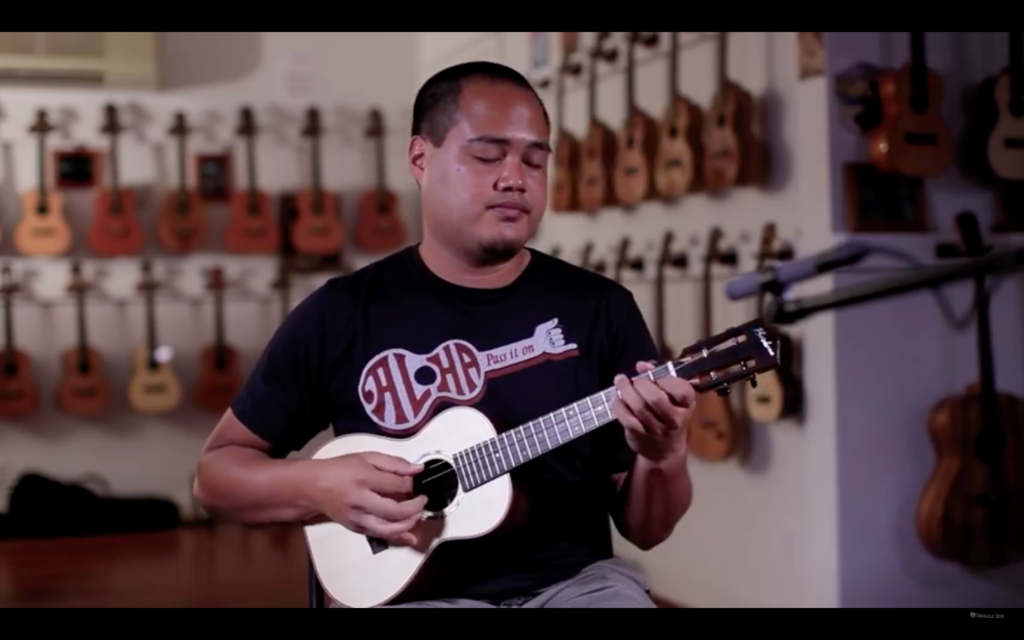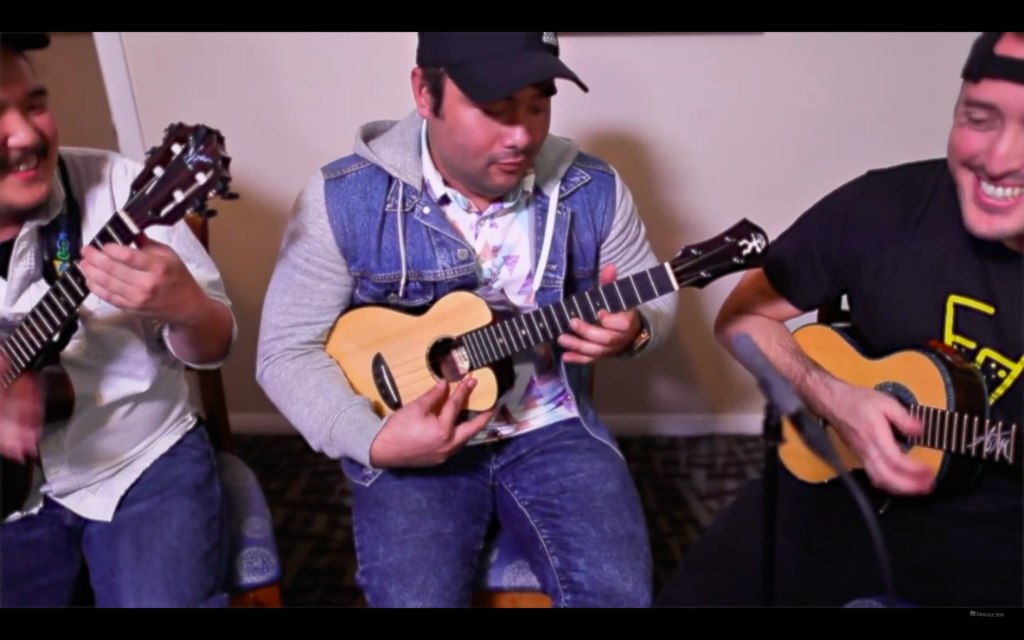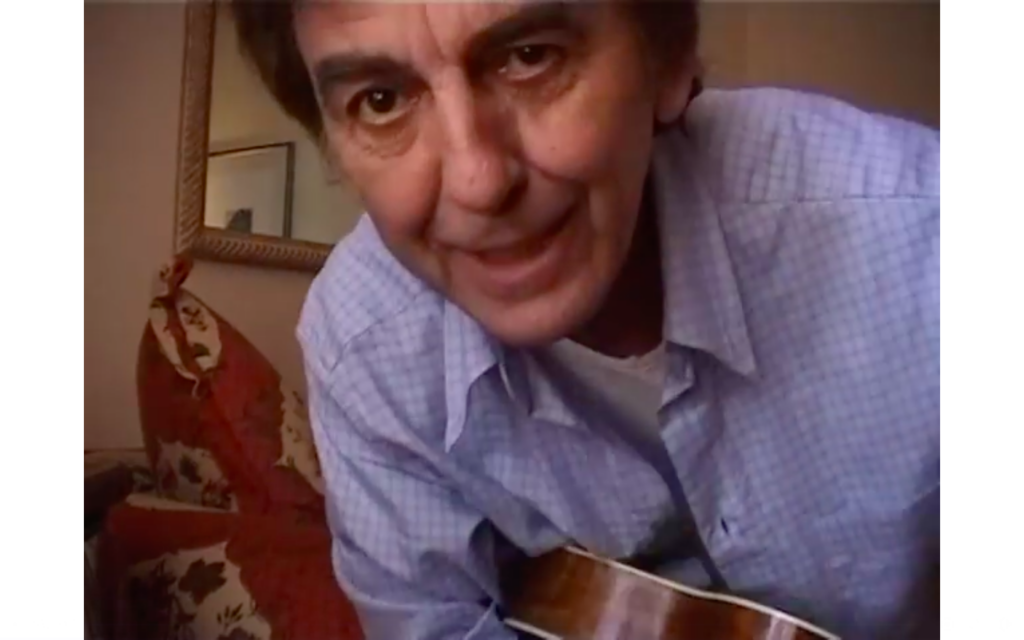I’m two days late for World Ukulele Day. Sigh.
But here’s my playlist for this year’s World Ukulele Day. It’s mostly instrumental, except for two pieces. Many of the performers are from Hawai’i, of course, but I tried to make this about world ukulele by including players from Thailand, Japan, the US mainland, Germany, England, and Canada. Musical styles range from traditional Hawai’ian to jazz to pop to folk and beyond.
Bach’s Sonata in G minor, BWV 1001: IV, Presto performed by Corey Fujimoto (Hawai’i)
Corey Fujimoto may not be showy like some Big Name Uke Players, but his musicianship and technical prowess are top drawer. This Presto movement from a Bach sonata shows off both his technical prowess, and his excellent musical taste.

“Ukulele, I Love You” written and performed by Singto Numchok with the Ribbee Crew (Thailand)
The words to this song are both silly and sweet. The real joy in this video is watching five top-notch uke players, all doing different things with the same tune. If you have five really good uke players, you really don’t need any other instruments.
“Precious” performed by Ryo Natoyama (Japan)
Japan has some of the best uke players in the world, and Natoyama is one of Japan’s best players. Enough said.
“Spain” performed by Andrew Molina, Kalei Gamaio, and Neal Chin (Hawai’i)
Three younger uke players trading improvised solos based on Chick Corea’s jazz standard “Spain.”The musical interaction between the three players results in sheer joy.

“Ka Ipo Lei Manu” by Julia Kapiolani performed by John King (US mainland)
John King was trained as a classical guitarist in the campanella style, and he made his name in uke circles by performing classical music on the uke. His arrangements of melodies by Hawai’ian composers are less well known, but well worth listening to. Both his arrangements and his playing are understated, allowing the beauty of the melodies to shine through.
“Little Grass Shack” performed by Ohta-san, Herb Ohta Sr. (Hawai’i)
Ohta-san really was as great as his reputation would have him be. A delightful rendition of this well-known hapa haole tune.
“Babooshka” by Kate Bush performed by Elisabeth Pfeiffer (Germany)
Pfeiffer is another player who trained as a classical guitarist then switched to uke. She is probably best known for her uke method books, but her performances are well worth listening to as well.
“When There’s a Shine on Your Shoes” performed by George Harrison (England)
A video from the near end of Harrison’s life. Topnotch rhythm playing from a master guitarist and uke player. (Note the name “Keoki” on the headstock of the uke — that’s Harrison’s uke name.)

“Swallowtail Medley” performed by John King (US mainland) and James Hill (Canada)
James Hill is a ukulele virtuoso, and he sometimes suffers from virtuoso-itis, making music more complicated than it needs to be. Not in this video, where Hill plays second fiddle, er uke, to John King.
“Neptune’s Storm” performed by Taimane Tauiliili Bobby Gardner (Hawai’i)
Taimane Gardner is another incredible uke player who sometimes suffers from virtuoso-itis. But in this performance, the high level virtuosity she displays is well matched to the requirements of the music.
“Somewhere Over the Rainbow” and “What a Wonderful World” performed by Israel Kamakawiwo’ole (Hawai’i)
For my money, Israel Kamakawiwo’ole was the best ukulele player ever. He doesn’t play with the virtuoso pyrotechnics of a James Hill, a Jake Shimabukuro, or a Taimane Gardner. But his playing is perfect. So is his singing.
For Carol and Ed.
Special bonus: Brittni Paiva playing Over the Rainbow
And I just had to add something by Sungha Jung — here’s his version of Pachelbel’s Canon in D
2/5: Updated with descriptions of the music, and a couple of screen grabs.
